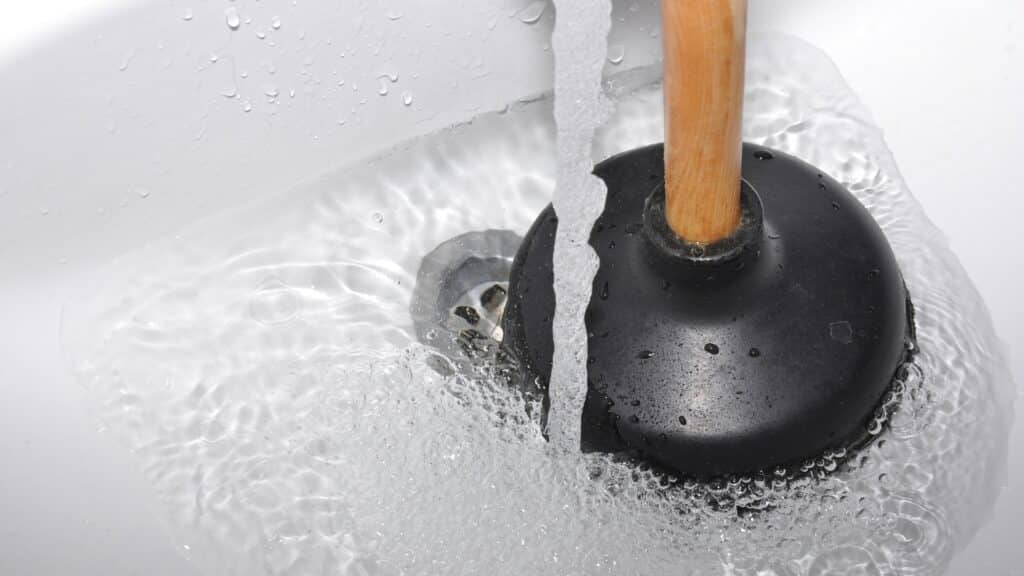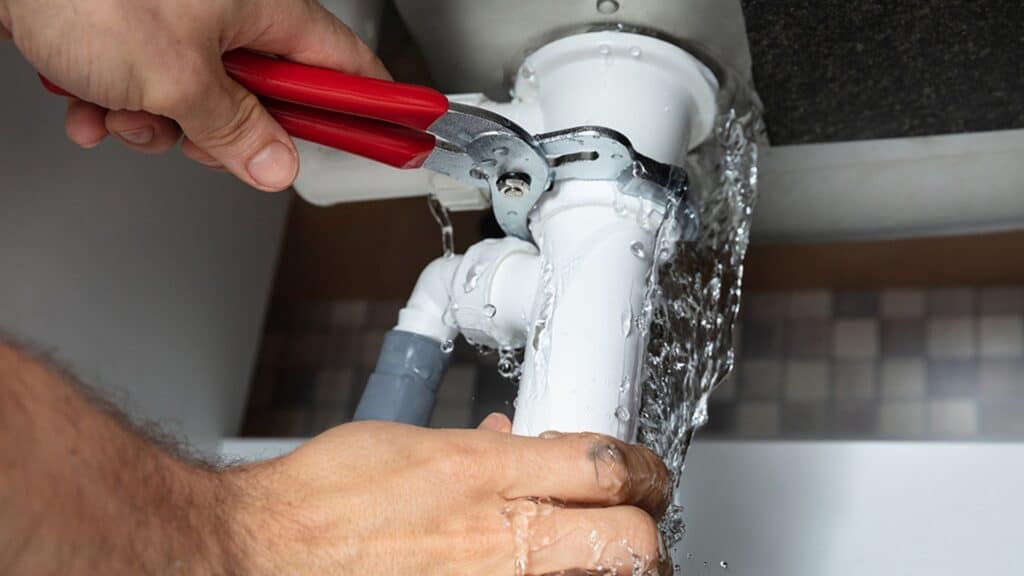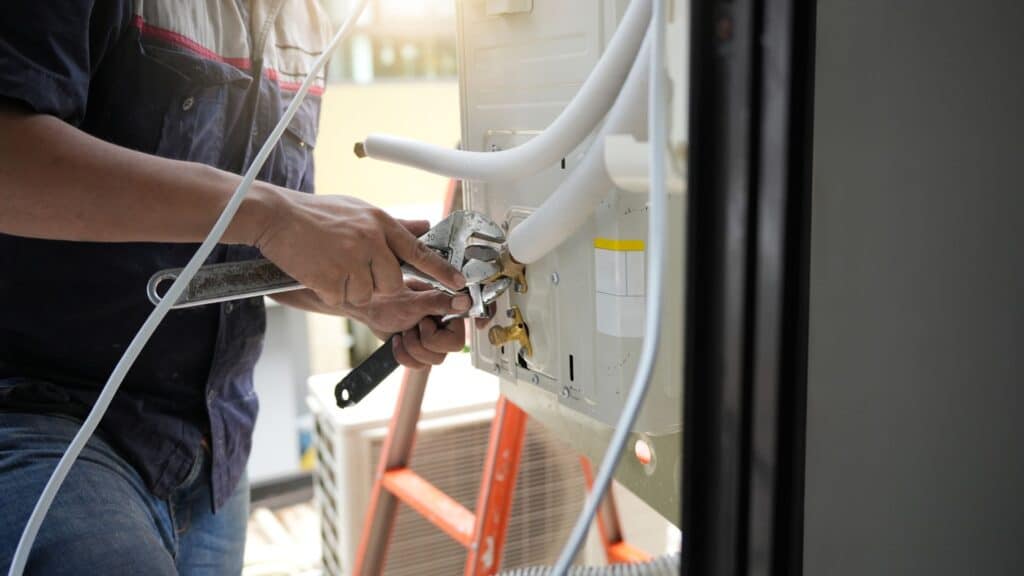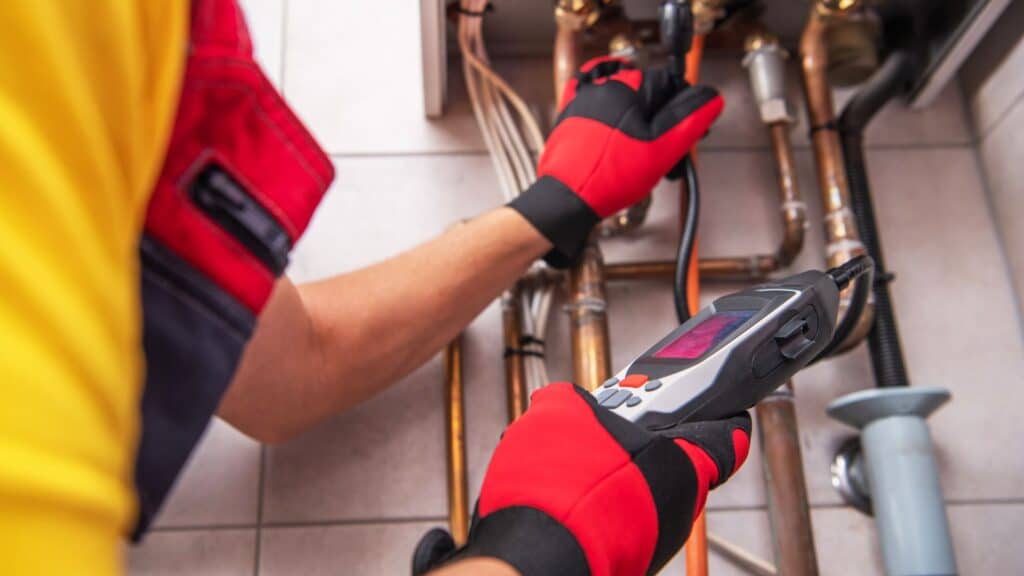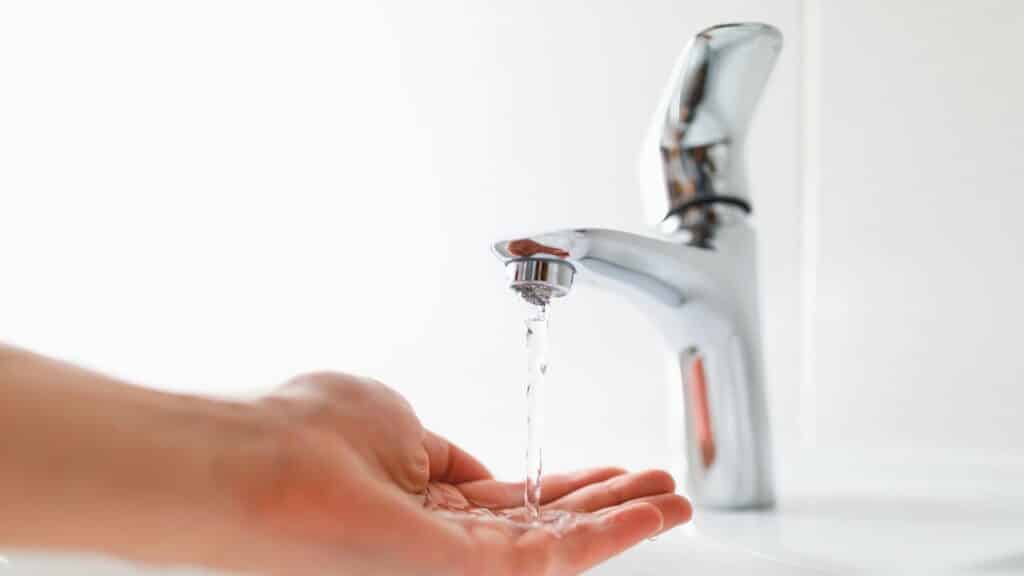Slow draining sinks are a common household nuisance. They can disrupt your daily routine and lead to bigger plumbing issues if not addressed promptly.
But what causes these slow draining sinks?
The culprits are often hair, soap scum, food particles, and grease. These materials can accumulate over time, causing a clog that slows down the drainage.
Fortunately, there are ways to clear these clogs and prevent future buildup. Some solutions can be done at home using simple tools and ingredients.
However, when DIY methods fail, it’s time to call a professional. A 24/7 emergency plumber can provide immediate assistance and use specialized techniques for thorough drain cleaning.
In this guide, we’ll explore how to effectively clear slow draining sinks, understand the common causes of clogs, and provide preventative measures to avoid future buildup. Let’s dive in.
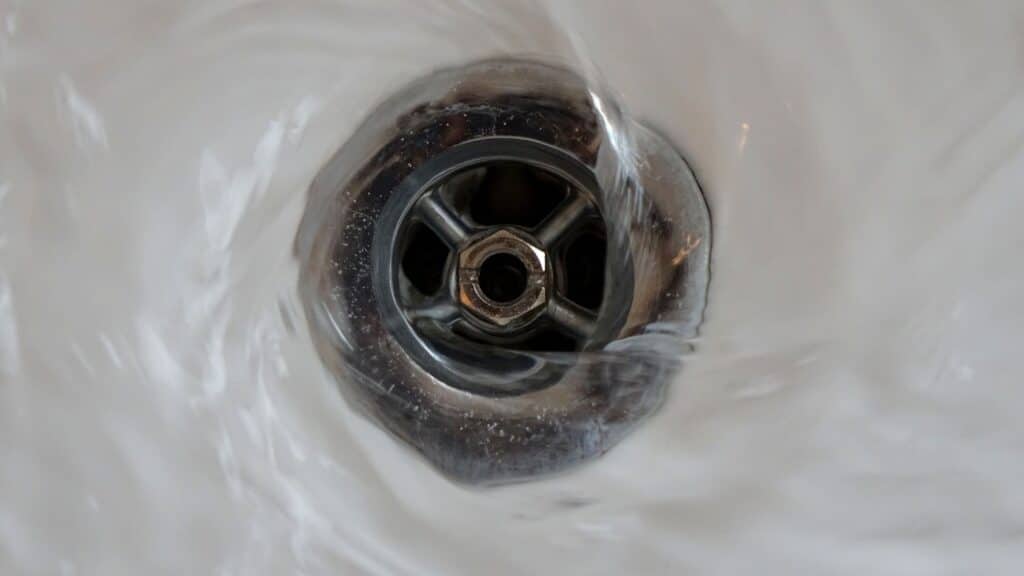
Understanding Slow Draining Sinks
Slow draining sinks can be frustrating and inconvenient. Understanding why they happen is the first step towards a solution.
The problem often starts small, with a slight slowdown in water drainage. Without addressing the issue, it can worsen over time. Identifying the early warning signs is crucial to prevent more severe issues.
Several factors contribute to slow draining sinks. They include:
- Buildup of soap scum and hair
- Accumulation of grease and food particles
- Foreign objects lodged in the drain
Each of these factors causes water flow to decrease and potentially lead to more severe clogs.
Recognizing these causes can help you take effective action. Not every slow draining sink is the same, and knowing what you’re dealing with is essential. By understanding the common causes, homeowners can implement effective strategies to clear clogs and maintain proper sink drainage. Awareness and regular maintenance can save time, money, and reduce headaches in the long run.
Common Causes of Clogged Sinks
Clogged sinks are a nuisance for many homeowners. Understanding what causes them is key to avoiding trouble.
Hair is a frequent offender in bathroom sinks. It mixes with soap to form stubborn clumps that slow drainage. Regular cleaning can help prevent buildup.
In kitchen sinks, food particles and grease combine to create blockages. Grease solidifies as it cools, adhering to the pipes. Over time, this creates a thick barrier that restricts water flow.
In some cases, foreign objects like small toys or jewelry can cause unexpected clogs. These items accidentally find their way into drains and create obstructions. Being mindful of what’s near the sink can prevent these types of clogs.
Ignoring these elements can lead to serious problems. Slow drainage might seem minor, but left unaddressed, it can escalate to more significant plumbing issues. Awareness and routine upkeep are essential to ensure pipes remain clear. By managing these common causes, you can maintain a healthy, clog-free sink.
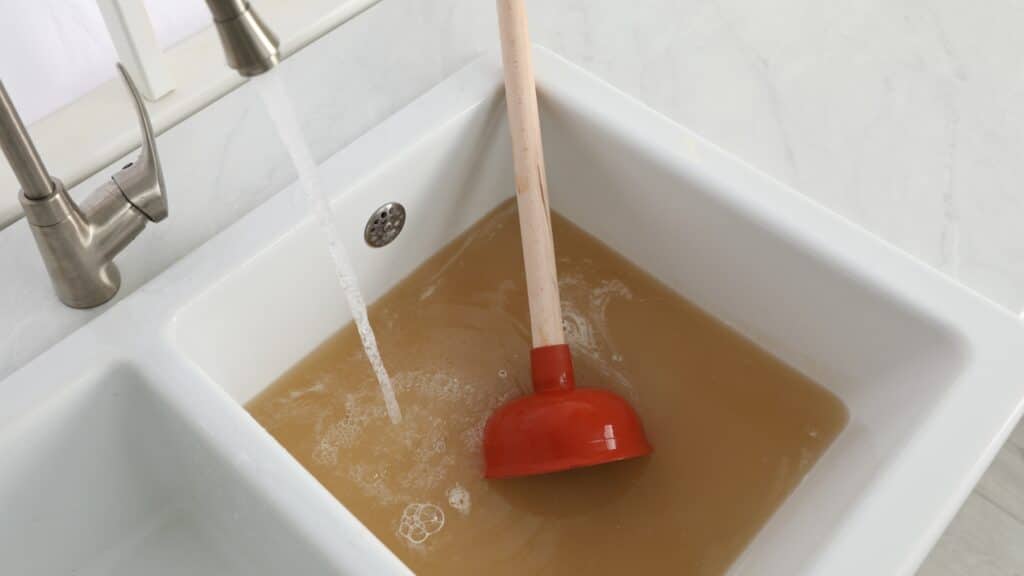
DIY Fixes for Slow Draining Sinks
Dealing with a slow draining sink doesn’t always require professional help. There are several DIY methods homeowners can use to tackle the issue.
Firstly, a plunger can be effective in dealing with minor clogs. It’s a simple tool that uses pressure to dislodge blockages. Many people find this method handy and effective.
Secondly, a combination of baking soda and vinegar offers a natural way to dissolve buildup. This approach is eco-friendly and avoids harsh chemicals. It’s especially useful for regular maintenance.
Thirdly, for tougher clogs, a plumber’s snake is an essential tool. This tool can reach deeper into the pipes to break up blockages. It’s a bit more involved but very effective.
Plunging the Right Way
When using a plunger, technique is crucial. Start by partially filling the sink with water. This helps create a seal needed for effective plunging.
Next, place the plunger over the drain to ensure a tight fit. Pump the plunger vigorously several times to create suction. This pressure can often clear away the obstruction.
If the water starts draining, the clog is likely gone. Repeat the process a few times if necessary. Patience and persistence are key to success with plunging.
Baking Soda and Vinegar Solution
Begin by pouring a cup of baking soda into the drain. Ensure the powder reaches the clog area. Follow this with a cup of vinegar.
The combination will fizz, breaking down minor blockages. Let the mixture sit for about 15 minutes. This gives it time to work on the buildup.
Finally, flush the drain with hot water. This should wash away any loosened debris. Regular use of this method can maintain clear drains without harsh chemicals.
The Plumber's Snake Technique
To use a plumber’s snake, start by inserting it into the drain. Push it down gently until you reach the blockage. The goal is to feel resistance that indicates the clog’s location.
Once at the blockage, turn the handle to break it up. The snake’s end grabs and twists through the debris, dislodging it. Move the tool through the clog several times for best results.
When you feel the blockage clear, retract the snake slowly. Finally, run water to confirm the sink drains properly. This ensures the clog is fully cleared, restoring normal function.
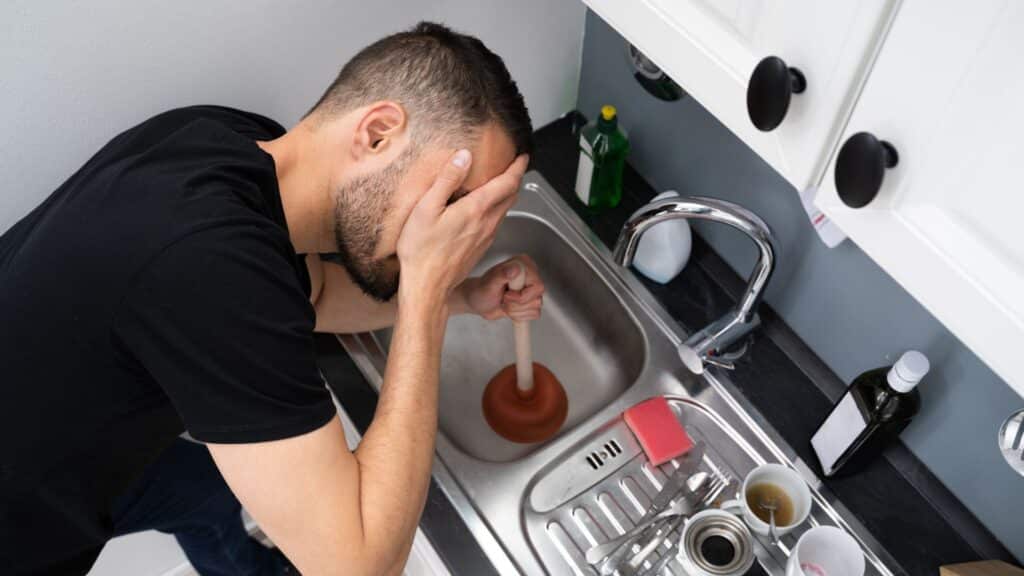
When to Call a 24/7 Emergency Plumber
Knowing when to call a professional can save you time and prevent further damage. Some sink issues are best handled by an expert.
If you’ve tried DIY methods without success, it may be time to contact a plumber. Persistent slow draining indicates a deeper problem. An experienced plumber can diagnose and resolve such issues.
When facing unpleasant odors or water backing up into other drains, don’t hesitate to call for help. These signs suggest a significant clog or plumbing issue. A 24/7 emergency plumber can provide timely intervention.
Finally, sudden, severe blockages that disrupt daily activities require immediate attention. Prolonged clogs can lead to water damage or mold. Professional plumbers have the tools and expertise to promptly restore normal function.
Professional Drain Cleaning Services
Hiring a professional for drain cleaning ensures thorough and efficient service. These experts use tools unavailable to most DIY enthusiasts. With the right equipment, they can tackle even the toughest clogs.
Professional drain cleaning offers peace of mind. Unlike some DIY methods, it guarantees the removal of all buildup. This service can address hidden issues like tree roots or major blockages.
One benefit of hiring professionals is their expertise in various cleaning techniques. They know when to apply methods like hydro jetting for effective results. By using specialized tools, they minimize damage to your pipes.
Beyond fixing current issues, professional services can prevent future problems. Regular maintenance can keep your sinks in top condition, saving time and money in the long run. Moreover, professionals provide valuable advice on maintaining your plumbing system.
Ultimately, professional drain services are a smart investment. They offer solutions tailored to your plumbing needs, ensuring a safer, more efficient home.
The Hydro Jetting Method
Hydro jetting is a powerful method used by professionals. This technique involves the use of high-pressure water jets. These jets effectively clear severe blockages in pipes.
The method is ideal for removing tough buildups like grease and debris. It’s also effective against tree roots that infiltrate sewer lines. Hydro jetting is both thorough and environmentally safe.
However, hydro jetting requires professional expertise. It may not suit old or fragile plumbing systems. Consulting a professional ensures the method is applied safely and appropriately.
CCTV Drain Surveys
CCTV drain surveys are a modern diagnostic tool. They involve inserting a small camera into the plumbing system. This process offers a live feed of your pipes’ interior.
The technique helps identify clogs and structural issues. It can pinpoint the exact location and cause of blockages. This precision leads to more effective and targeted solutions.
CCTV surveys save time and prevent unnecessary damage. They eliminate the guesswork involved in diagnosing plumbing problems. Professionals can then address issues efficiently, ensuring your plumbing system is in top condition.
Preventative Measures to Avoid Future Clogs
Preventing clogs before they form can save both time and frustration. Simple habits make a big difference in maintaining clear drains. Implementing these measures ensures longevity for your plumbing.
First, be mindful of what enters your sink. Avoid pouring oils, fats, and grease down the drain as they solidify and cause blockages. Opt for disposing of these items in a trash can instead.
Second, installing mesh drain covers helps catch debris. These covers prevent hair and food particles from entering and causing buildup. They’re affordable, effective, and easy to clean.
Moreover, regular maintenance can keep your drains flowing smoothly. Consider these tasks:
- Clean your P-trap regularly: This prevents obstructions.
- Run hot water: Do this after each use to dissolve minor buildup.
- Use natural enzyme-based cleaners monthly: These options break down organic materials safely.
Educating household members about proper sink usage is key. Teach everyone about the types of waste that should not go down the drain. This practice reduces the risk of accidental clogs.
Finally, stay proactive with professional maintenance. Schedule regular inspections to catch potential issues early. These preventative measures will help you avoid major drain problems in the future.
Environmental Considerations for Drain Cleaning
Drain cleaning often involves choosing between various methods, each with its environmental impact. Opting for eco-friendly solutions can benefit your household and the environment. Choosing the right approach is crucial.
Chemical cleaners, while effective, pose risks to your pipes and the water system. They can cause corrosion and release toxins into the environment. Instead, consider natural alternatives for safer results.
Natural enzyme-based cleaners offer a gentle yet efficient way to address clogs. These products break down organic matter without harmful residue. They help maintain eco-friendly plumbing practices in your home.
In addition, simple at-home remedies like baking soda and vinegar are both effective and environmentally friendly. They provide a nontoxic way to manage minor clogs. Embracing these options supports sustainable living and keeps your drains clear.
FAQs About Slow Draining Sinks
Why is my sink draining slowly?
A slow draining sink is often due to clogs from hair, soap scum, or grease. These common culprits block water flow.
Can boiling water help fix a clog?
Yes, boiling water can dissolve minor grease buildup. However, it might not work for more persistent clogs.
Are chemical drain cleaners safe to use?
Chemical cleaners can damage pipes and harm the environment. Use them sparingly, with caution, and consider alternatives.
When should I contact a plumber?
If DIY solutions fail, or water backs up, it’s time to call a plumber. Timely help can prevent severe damage.
What's the best way to prevent clogs?
Prevent clogs by using drain covers and avoiding putting oils and non-food items down the sink. Regular maintenance is key.

